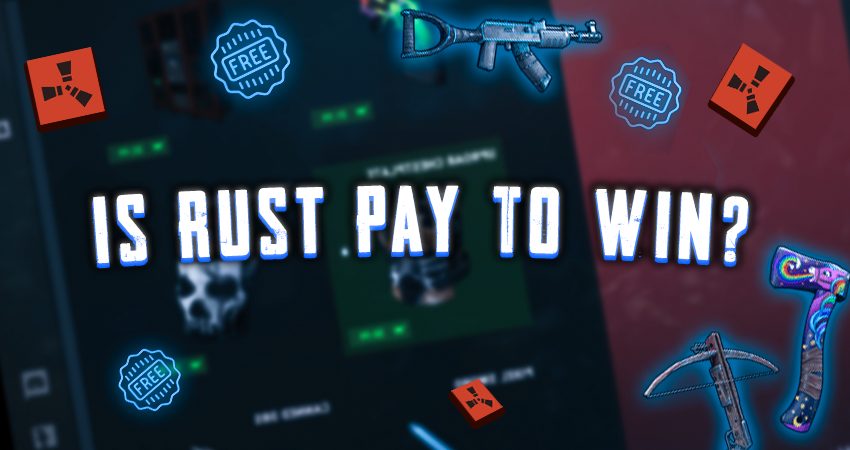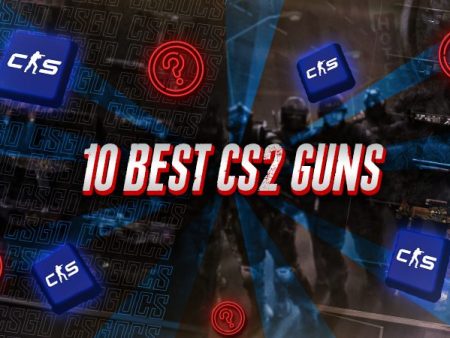

One of the most hated things in the gaming community is pay-to-win games. However, a lot of times, it isn’t clear whether a game is pay-to-win or not. Here is a complete explanation of whether Rust is a pay-to-win game.
Key Takeaways
- Pay-to-win games involve purchasing in-game items that offer significant advantages to users, leading to an easier path to victory. The concept of pay-to-win varies across a spectrum, from minor advantages to blatant unfairness.
- The article identifies several skins in Rust that could be considered pay-to-win due to their gameplay advantages. These skins include improved visibility, enhanced camouflage, and better survivability. The Arctic Suit, providing improved cold protection, stands out as a particularly controversial example.
- While Rust does possess elements that could be seen as pay-to-win, the game’s overall design isn’t centered around the pay-to-win model. The article highlights the situational nature of these advantages and the rarity of encountering players who fully exploit them for unfair victories.
- The article suggests that despite the existence of pay-to-win elements in Rust, winning or losing primarily hinges on player skill rather than the specific skins opponents are using. This indicates that the game doesn’t substantially favor paying players over those who don’t wish to spend money.
- The article concludes by noting that while Rust might not be intentionally designed as pay-to-win, the presence of such elements is a cause for concern. It suggests that the developers should consider addressing these concerns to ensure a fair and balanced gameplay experience for all players.
What is Pay To Win?
Pay-to-win games allow players to purchase in-game items that give their users a significant and unfair advantage over players that don’t have those items, allowing them to reach victory much more easily. However, games usually aren’t blatantly pay-to-win. Rather, they lie on a spectrum.
A game can have minor pay-to-win elements like weapon skins with marginally better iron sights. On the other hand, some games have highly camouflaged character skins, making the user extremely hard to see in combat.
The Pay To Win Elements in Rust
Unfortunately, Rust has plenty of skins that can be considered pay-to-win. Those skins include:
- Cargo Heli Crossbow: this skin allows you to see more of what’s in front of you thanks to the gaps between the frame of the bow.
- Blackout Bow: Similar to the one above, this has improved visibility on the top right portion of the screen.
- Alien Relic SMG: This one has glow-in-the-dark iron sights, making it easier to aim at enemies during the night.
- Blackout Python: This Python skin has remarkably better visibility, plus a great iron sight with a red dot.
- Imp SAR: Compared to the regular version, this SAR skin’s iron sight has much better visibility.
- Whiteout: Players can practically be invisible in the snow with this suit. Spotting enemies who are using this skin in the snow is nearly impossible.
- Arctic Suit: This is probably one of the most hated pay-to-win elements in the game. This suit allows players to survive the winter much more easily with improved cold protection over the default option.
The worst part is that this list does not end here. These are just some of the common pay-to-win items.
Is Rust a Pay To Win Game?
As we have mentioned, there are a lot of pay-to-win elements in Rust. Almost all of these items provide an advantage over players who don’t have these items. Take the Arctic Suit, for example. In a game like Rust, where the main goal of each player is to survive as long as possible, adding a suit that helps in survivability makes no sense.
That said, these items are somewhat situational. Plus, you will rarely come across players using these skins in a way that makes them pay-to-win. Classifying Rust as a pay-to-win game would be unfair since it is not designed on the pay-to-win model. However, the pay-to-win elements present in the game are a serious concern, and the developers should really think about fixing them.
Conclusion
Rust definitely has a lot of elements that can classify it as a pay-to-win game. However, one can argue that these elements aren’t intentionally designed to make the game pay-to-win. At the end of the day, even with the multiple pay-to-win elements, Rust doesn’t seem to be one of those games that allow players to get a significant and unfair advantage over players who don’t wish to pay. Whether you win or lose will mostly depend on your skill instead of what skin your opponents are using.
FAQ
What exactly does “pay-to-win” mean in gaming?
Pay-to-win refers to a game design model where players can purchase in-game items using real money that provide them with significant advantages over other players who haven’t made these purchases. These advantages can range from improved gear, enhanced abilities, or other gameplay advantages.
How do games like Rust incorporate pay-to-win elements?
Games like Rust incorporate pay-to-win elements by offering skins or items that grant gameplay advantages. These advantages might include improved visibility, camouflage, or enhanced survivability, giving paying players a potential edge over non-paying players.
What are some examples of pay-to-win skins in Rust?
In Rust, several skins have been identified as potentially offering pay-to-win advantages. These include items like the Cargo Heli Crossbow, Blackout Bow, Alien Relic SMG, Blackout Python, Imp SAR, Whiteout suit, and the Arctic Suit, all of which can confer varying degrees of advantage to players.
Are pay-to-win elements intentional in Rust?
While Rust doesn’t seem to be intentionally designed as a pay-to-win game, it does have certain skins that grant advantages. The article suggests that these elements might not have been intentionally created for a pay-to-win advantage, but rather emerge as a consequence of the game’s design and mechanics.
Does Rust’s gameplay heavily favor paying players?
The article highlights that, despite the existence of pay-to-win elements, Rust’s gameplay primarily revolves around player skill rather than the specific skins players possess. The advantage granted by pay-to-win skins might be situational and not guarantee a win, making player skill a more decisive factor.
Should Rust be classified as a pay-to-win game?
The article suggests that classifying Rust as purely pay-to-win might not be entirely accurate. While the game does have elements that could be considered pay-to-win, they are situational and don’t necessarily guarantee success. The overall gameplay experience is still determined by player skill.
What should developers do about pay-to-win concerns?
The article concludes by recommending that developers should address the pay-to-win concerns present in Rust. While the game’s design might not intend to promote pay-to-win, addressing these elements would ensure a more balanced and fair experience for all players.
Can players avoid pay-to-win advantages in Rust?
Players who wish to avoid pay-to-win advantages in Rust can choose not to purchase the specific skins that provide advantages. This allows them to engage with the game on a more even playing field with others who share similar values about gameplay fairness.
Are there any games that successfully balance cosmetic items and gameplay fairness?
Yes, some games have managed to strike a balance between offering cosmetic items for purchase and maintaining gameplay fairness. Games like Fortnite and Apex Legends are often cited as examples where cosmetic items don’t significantly impact gameplay advantages.
Is the concept of pay-to-win a concern in the broader gaming community?
Yes, the concept of pay-to-win is a significant concern in the gaming community. Many players advocate for fair and skill-based gameplay experiences, and the presence of pay-to-win elements can lead to frustrations and perceived unfairness among players.








